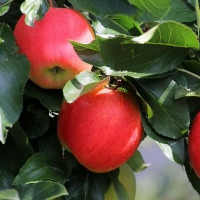Luo Binwang was a famous poet in the early Tang Dynasty of China. Among the four outstanding poets in the early Tang Dynasty, Luo Binwang wrote the most poems. A poem "Geese, geese, singing to the sky" became an enlightenment poem for children in China. Luo Binwang was unprepared for his talent and was down and out. He had a great prejudice against Wu Zetian. Later, he failed to revolt with Xu Jingye, and the outcome was unknown.
Why is King Luo Bin King
King Luo Bin did not call himself king. His surname is Luo, and his name is King Bin. "King Bin" means two things:
1. It means coaching the emperor. Guest, pass the "best man". The language version of Yi Guan: "Look at the light of the country and make use of the guests in the king." Wang Bi notes: "Those who are close to the throne and learn the national dignity in the Ming Dynasty are also called to make use of the guests in the king."
2. Refers to high officials and close officials who assist the emperor. The seventh chapter of the Annals of the Eastern Zhou Dynasty states: "I was ordered to beg the Song Dynasty. Now I rely on the power of the state's soldiers to take two towns, which is enough to be punished for cutting the land. My dear King Bin, the royal family has always respected the ceremony. How dare I ask for more? Qi and Lu have one of the two towns, Gao and Fang. I dare not be selfish."
Does King Luo Bin have descendants
The present situation of descendants of King Luobin shows that the Luo family in Zheng'an is indeed the descendants of King Luobin. King Luo Bin was hunted down by the government. In order to avoid disaster, his descendants scattered in different places.
Luo Shiyi is the 59th generation grandson of Luo Binwang. He graduated from Zheng'an No. 1 Middle School and worked in the county post and telecommunications bureau. After retirement, he specialized in sorting out the "Luo Family Tree".
Luo Kaijun, the 61st descendant of King Luo Bin, works in the County Hospital of Traditional Chinese Medicine and is the chairman of the "Zheng'an Luoshi Culture Research Association".
Luo Keqiang is the 62nd generation grandson of Luo Binwang. After graduating from university, he went to Xinjiang to support teaching. Now he is a professor of the Faculty of Humanities of Kashgar University.
Why did King Luo Bin revolt
The reason why King Luo Bin wanted to revolt was mainly because he was loyal to the Tang Dynasty rather than the Wu family. However, at that time, Empress Wu Zetian ruled with the authority of the empress dowager. Although the emperor was called the emperor in her hands, she had no power. Moreover, Empress Wu also abolished Li Xian, the Emperor Zhongzong of the Tang Dynasty, as the King of Luling, and changed Li Dan, the Emperor Ruizong of the Tang Dynasty, to be the emperor.
Empress Wu's intervention in politics attracted a lot of dissatisfaction. However, in order to secure her rights, she would use harsh and cruel means to stabilize her position. Due to Empress Wu's interference in politics and suppression of loyalty and good people, Xu Jingye was finally dissatisfied with Empress Wu's behavior and raised an army against Empress Wu in Yangzhou.
Because Luo Binwang was a talented person, his literary talent was very good. At the same time, he was not used to Wu Zetian's interference in politics, so he wrote a call to arms. The call to arms listed Wu Zetian's guilt, which was not only good literary talent, but also very moving. In this way, Luo Binwang followed the rebellion.
So King Luo Bin would rebel against Xu Jingye.
When Wu Zetian saw one of the words in the proclamation written by King Luo Binwang, "The land we have taken up is not dry, and the six foot old man is safe", she was shocked by the talent of King Luo Binwang, and said that it was the prime minister's fault that such talents were not used by the court.
Later, Xu Jingye was defeated and died, but Luo Binwang's whereabouts were unknown. One was killed, another was deserted, another was desperate, another was thrown into the river. In short, Luo Binwang's whereabouts are unknown.
Luo Binwang, a famous poet of the Tang Dynasty, has a good literary talent. Luo Binwang, Yang Jiong, Lu Zhaolin and Wang Bo are known as the "Four Masters of the Early Tang Dynasty", which shows his literary achievements at that time.

